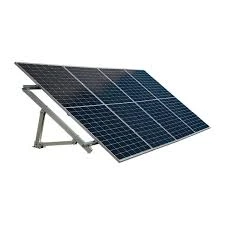selling a house with solar panels
Selling a House with Solar Panels Key Considerations
As renewable energy sources continue to gain traction, more homeowners are opting to install solar panels, making properties with solar energy systems increasingly appealing to buyers. If you're contemplating selling a house equipped with solar panels, there are several key factors to consider. Understanding the benefits and addressing potential concerns can help you navigate the selling process effectively.
1. Understanding the Benefits of Solar Panels
One of the most significant advantages of selling a home with solar panels is the potential for reduced energy costs. Homebuyers are increasingly aware of energy efficiency, and the promise of lower utility bills can be a significant selling point. According to various studies, homes with solar panels tend to sell at a premium compared to those without. This premium can vary based on factors like location, local energy prices, and the age of the system.
Beyond financial benefits, solar panels also appeal to environmentally conscious buyers. As awareness about climate change and sustainability grows, properties that utilize renewable energy sources are often seen as more desirable. This shift in consumer values can not only attract potential buyers but also enhance the reputation of your property in the market.
2. Documenting the Solar System's Performance
When selling your home, it's crucial to provide potential buyers with detailed information about the solar system installed. This includes documentation of its installation, warranty details, and performance metrics. Buyers will want to know how much energy the system generates, its maintenance history, and any financial incentives or tax credits associated with it. A solar energy report showing production data can reassure buyers about their investment.
Additionally, understanding whether the solar panels are owned or leased is essential. If the panels are leased, you’ll need to explain the lease terms and how they will transfer to the new owner. Clear communication about these details helps mitigate any confusion and builds trust with prospective buyers.
3. Addressing Financing Concerns
selling a house with solar panels

Financing can be a significant concern for buyers interested in solar homes. If the system is leased, some buyers might be hesitant to take on the lease payments. It’s wise to discuss options, such as buying out the lease if possible or exploring alternative financing methods. Educating yourself about local lending programs for solar energy can also help provide potential buyers with options that ease their financial burdens.
Moreover, highlight any local or state incentives for solar energy systems. Many regions offer grants, refunds, or tax breaks for solar installation. Knowing these incentives can motivate buyers and sweeten the deal, making your property more attractive.
4. Marketing Your Solar-Equipped Home
When marketing your home, emphasize the added benefits of having solar panels. Consider hiring a real estate agent experienced in selling properties with renewable energy systems, as they can highlight the advantages during showings and in listings. Utilize high-quality images of your solar installation, and include testimonials or words from satisfied previous owners regarding energy savings.
Make sure to mention the technology used, such as the type of panels, inverters, and battery storage systems, if any. These details can be crucial for buyers who are knowledgeable about solar energy and are seeking a reliable and efficient system.
5. Being Prepared for Questions
Finally, be prepared for questions from potential buyers. Common inquiries may include the age of the panels, maintenance needs, how much energy they produce, and whether there are any outstanding warranties. Being knowledgeable and transparent can help ease concerns and foster confidence in your home.
In conclusion, selling a house with solar panels can be a positive experience if you approach it with the right information and strategy. By understanding the benefits, addressing financing and documentation concerns, and effectively marketing the property, you can not only enhance your home's attractiveness but also potentially increase its value in a competitive real estate market. As the demand for sustainable living grows, you may find that your solar-equipped home is a hot commodity.
-
Unlocking Energy Freedom with the Off Grid Solar InverterNewsJun.06,2025
-
Unlock More Solar Power with a High-Efficiency Bifacial Solar PanelNewsJun.06,2025
-
Power Your Future with High-Efficiency Monocrystalline Solar PanelsNewsJun.06,2025
-
Next-Gen Solar Power Starts with Micro Solar InvertersNewsJun.06,2025
-
Harnessing Peak Efficiency with the On Grid Solar InverterNewsJun.06,2025
-
Discover Unmatched Efficiency with the Latest String Solar InverterNewsJun.06,2025







